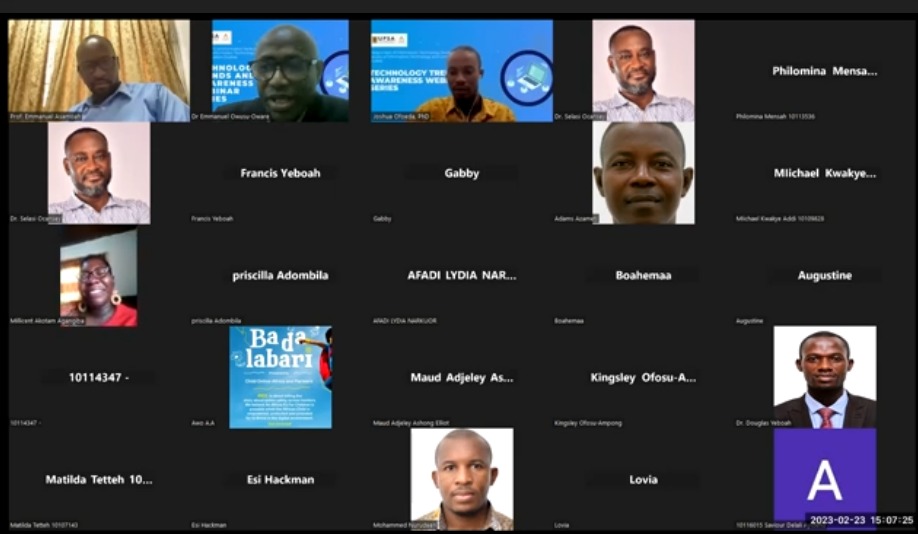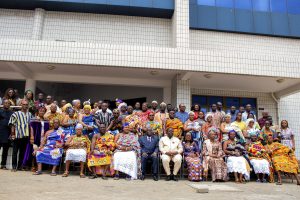The Department of Information Technology Studies has organised a one-day webinar to educate and equip members of the University community and the general public with basic technological skills and practical tools to protect children online.
This was through a webinar, themed “How to Protect Your Child Online”. It was the third and final part of the Combating Online Fraud Series, a Technology Trends and Awareness campaign instituted by the IT Department.
Information Systems Security Expert and Lecturer at UPSA, Dr Selasie Ocansey, who was the guest speaker, observed that the COVID-19 pandemic has seen more children and young people spending more time online.
This, he said, has somewhat increased their risk of being exposed to negative experiences and interactions.
He cited exposure to cyberbullying, adult/pornographic materials, fake news, and other inappropriate content as some of the online hazards facing children.
To combat these threats, Dr Ocansey said parents should adopt basic technology solutions like profiling their children’s online accounts, turning on parental control settings on devices belonging to their children, and activating multi-factor authentication.
“Parents can also create healthy and safe online habits by spending time with their children online and educating them to keep an open communication online,” Dr Ocansey explained.
“They must also practice open and frank communication with them, where they teach the children the appropriate language to use online and how to shun behaviours and actions that tend to be injurious to the sensibilities of others online.”
The Executive Director of Child Online Africa, Awo Aidam Amenyah, believes any intervention that seeks to safeguard the future and welfare of children must first take into consideration the interests of the child and what they do, especially within the digital space.
She said while technology has presented a plethora of learning opportunities for the Ghanaian child, it also poses serious dangers to them.
She stressed that there is therefore a need for parents, caregivers, teachers, social educators, and other stakeholders that seek the interests of young people to minimize the online risk for children as they explore the internet for knowledge and entertainment.
“It even demands that we go a step further to anticipate the challenges they might face and be proactive in putting in place solutions or strategies—both technical and practical—that the gatekeepers of these children can fall on,” Madam Amenyah said.
“These include asking ourselves what can be done at the various human and device levels to safeguard these children online.”
For his part, the Vice Dean of the Faculty of Information Technology and Communication Studies noted that the rapid advancement of technology has impacted the world, bringing benefits as well as a number of challenges to users.
“As a department responsible for Information Technology at the University, we had the urge to come up with such a technology awareness webinar to educate the general public regarding the use of digital technologies and associated dangers,” he said.
The webinar, which took place on Thursday, February 23, was attended by over 160 participants.



